You're sitting in a small cafe at a table for two on the Amalfi coast.
The sun's rays warm your skin while you breathe in the hot Italian summer air.

Your sunglasses are sitting on the bridge of your nose as you take a bite of your
crispy cannolli.
You feel relaxed and content.
Wait a minute.
You're not in Italy.
At this point, you realise you're sitting at work, a strong beam of sunlight streaming through your office window. Papers sprawled on your desk.
That crispy cannolli is actually a strand of hair? Ewwwwww!
You quickly scan the room, but nobody seems to have noticed you nibbling on that dull mop of yours. Phew.
Daydreaming about your upcoming European getaway is one thing, but that damaged hair is a whole other horror story straight out of a Stephen King novel.
But you’re not fit for horror.
You’re more a mystery, drama-type, or at the very least, sassy romance novel heroine we’ve all been waiting for.
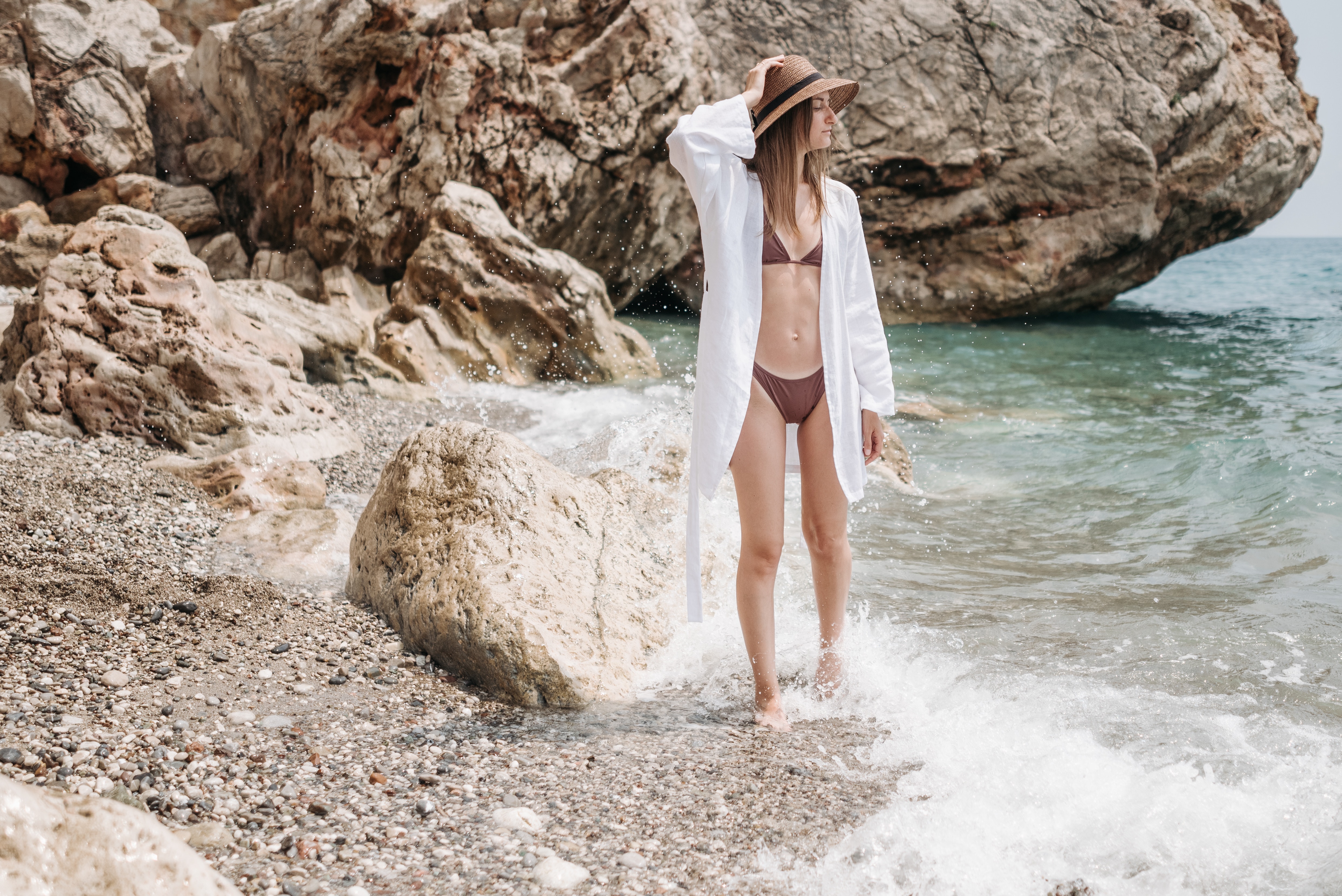
It’s time to fix things and change your storyline.
Starting right now.
If your hair needs a new lease on life - and no offense, it does - you’re in luck.
Because we know people that know hair.
We’ve sat down with Martina, founder of Mashala and all-round hair care extraordinaire.
And we have questions.
She’s sharing with us her hottest summer tips for taming that unruly beast on your head.
Limp, lifeless locks, waves that wreak havoc and wiry curls no more!
Say goodbye to salty summer strands and hello to a head full of luscious healthy hair - because yours is about to shine brighter than the sun itself.
Summer Hair Care Questions You Desperately Need Answers to
Why is summer different? What products should you invest in?
Hair in summer needs something completely different than in winter, when there is a lot of humidity, wind and cold outside.
Dry air, high temperatures, salt from the sea and chlorine from the pool significantly affect the behaviour of our hair.
In summer we wash our hair a lot more than we do in winter due to daily swims in the sea or pool, which is why I recommend using gentle shampoos without sulfate, or CoWash emulsion for washing hair.
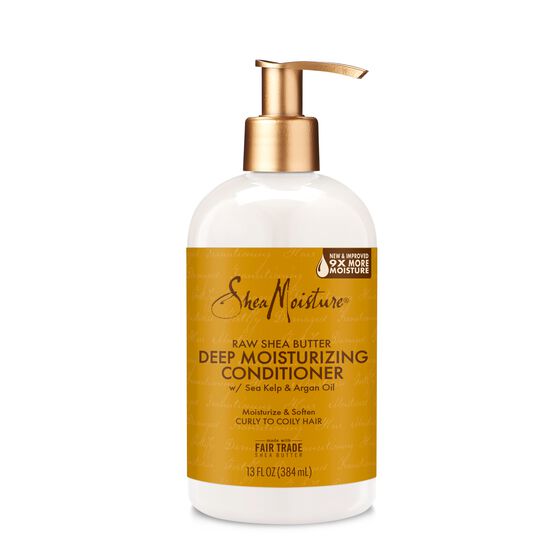
A moisturizing conditioner and hair mask once a week for 30 minutes is a must have.
Your hair needs light ingredients and nutrients to save it from drying out from the sun, sea and chlorine.
If styling products such as creams, gels or hair lotions are used, then you should choose products that do not contain glycerin.
This is because glycerin in products is a humectant, which means that it attracts water from the environment and thus compensates for moisture in the hair.

In summer when the air outside is dry, glycerin helps moisture come out of your hair (because the atmosphere needs moisture in summer and the atmosphere is more important from your hair ?) and thus loses its purpose. Glycerin-free products are the best option for summer hair care because they lock in moisture in the hair and prevent unwanted frizz.
Is it smart to dye your hair in summer?
It’s better to avoid colouring your hair in the summer - that’s for sure.
Chemicals from hair dyes destroy hair cortices and open the cuticle, and coloured hair can become extremely porous. When the porosity of the hair is high, the hair then absorbs very quickly but also releases water, nutrients from the product and thus the color. Add to that strong sun (UV radiation), high temperatures and salt or chlorine and at the end of summer you have one damaged mop of hair on your head.
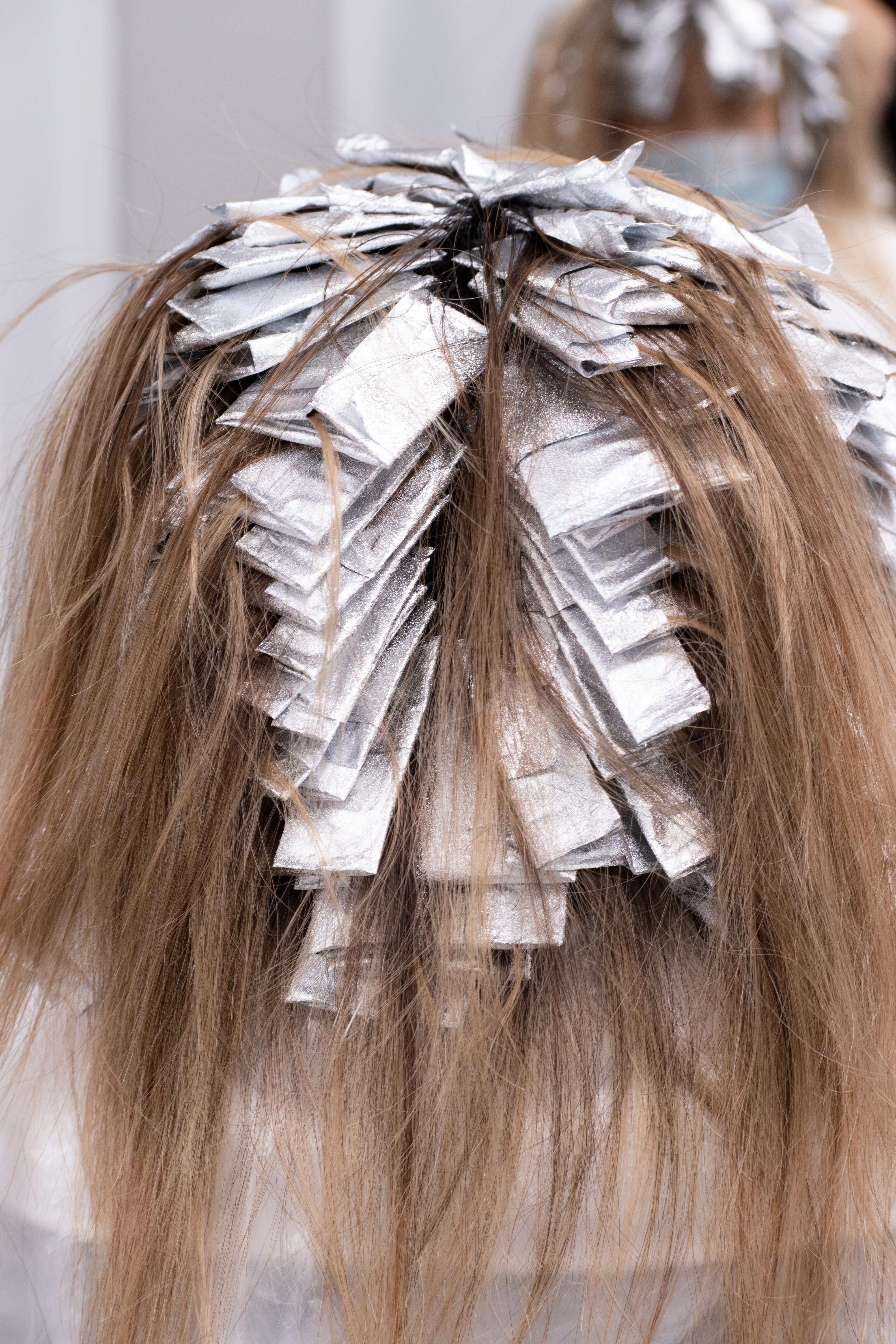
Naturally based hair dyes are great and also do their job, so my advice is to turn to natural ingredients at least in the summer.
How can you protect your hair from the elements?
UV-protected hair products (sprays, oils, creams) and rinsing your hair with water after leaving the sea or pool are your best bet.
I advise you to have your hair in a light ponytail or bun during the day. A large hat or cap on the sea is a bonus your hair will love you for.

Before swimming in the sea or pool, it is good to apply leave in conditioner so that salt or chlorine create less havoc.
How should you maintain hair after swimming in the sea?
After your swim, rinse your hair with tap water. If there is a shower near you, go under it immediately.
Then, apply leave in conditioner or hair cream. The ingredients from the cream or conditioner will prevent your hair from drying out and keep it soft.
Does salt damage hair? There are hair products containing salt all over the internet and some even say sea water is a natural shampoo.
There’s no denying that sea salt has its benefits for your hair and scalp. It helps with increased sebum secretion and cleans the hair of product buildup.
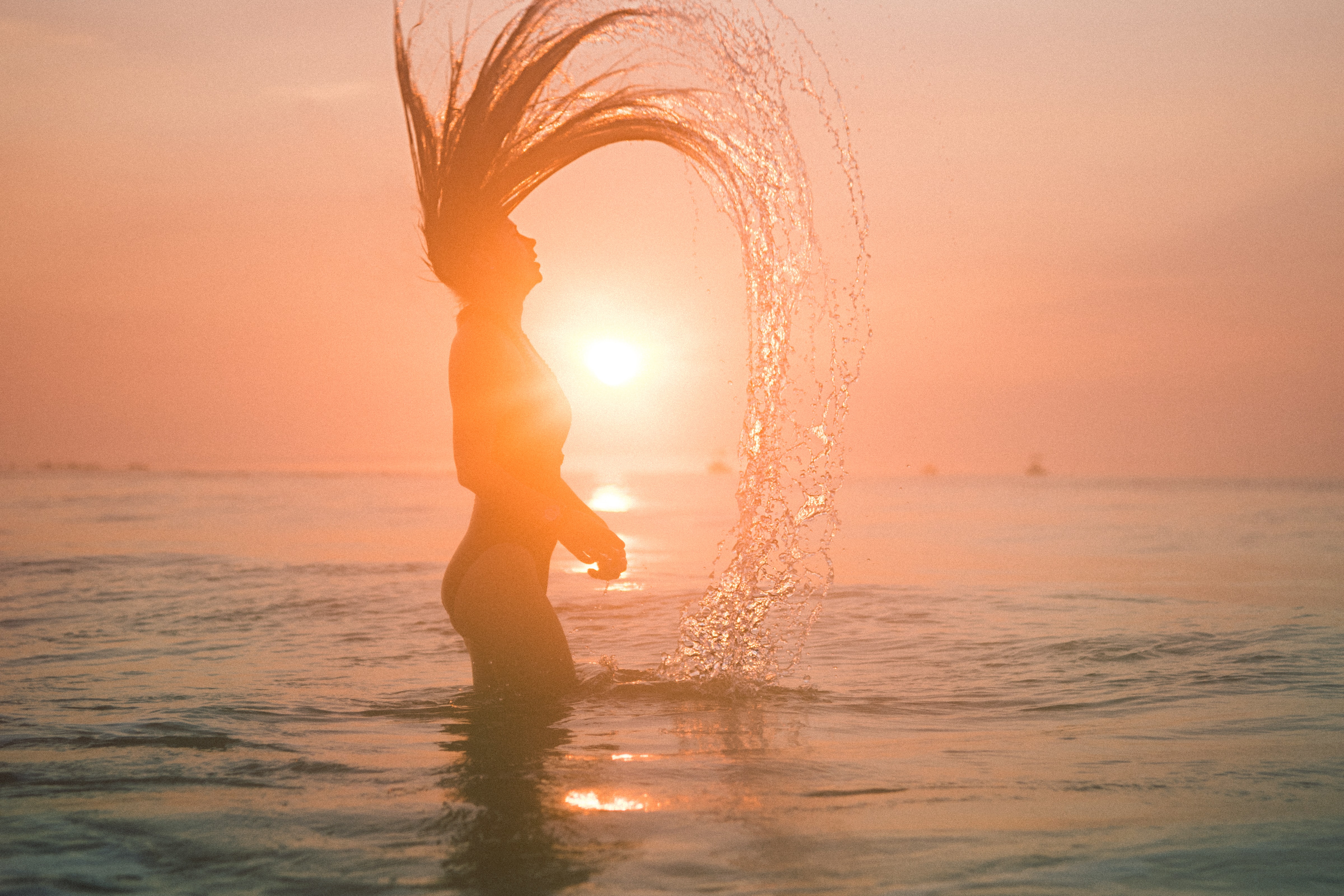
However, this is only true for periodic dips in the sea, not if you’re channeling your inner mermaid on a daily basis or several times a week.
Long-term and frequent washing of hair in the sea will cause a counter effect, resulting in dry hair and scalp.
What if you’re on a two week vacation and on the beach all day, is it enough just to rinse your hair out with water?
If you’re at the beach every day, or every other day, it’s enough to wash your hair with shampoo once or twice a week.
In between, I recommend washing with CoWash emulsion - CoWashing is a way of washing your hair with a conditioner that contains mild cleansers.
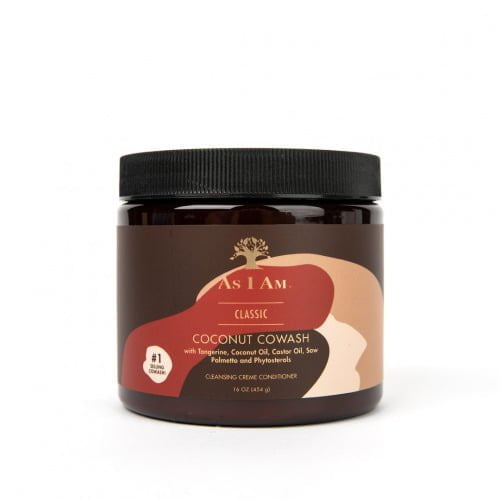
Usually it’s used for two to three washes in a row with regular shampoo thrown in between. This is the perfect product for frequent washes throughout summer, although it is my MUST HAVE throughout the whole year.
Does heat protection spray keep hair safe in summer?
Heat protection products (designed to safeguard in high temperatures) do not necessarily mean UV protection. Be sure to check the UV bottle to see if UV protection is indicated.
What ingredients should you look for in products that actually protect your hair in summer?
Quality heat protection products contain ingredients such as:
Panthenol and propylene glycol which are moisturizers - they retain moisture and block frizz
Amino acids (such as keratin) - to strengthen hair
Natural oils (coconut, almond, argan, avocado oil and shea butter)
Extracts (such as aloe) – they protect and close the hair cuticle
Oils are natural protectors, while of other less natural ingredients, such as silicone which also does a great job, however you need to use it in combination with sulphate shampoo.
Lastly, what’s your best tip to maintaining shiny hair during summer for different hair types?
Oils, oils, oils!
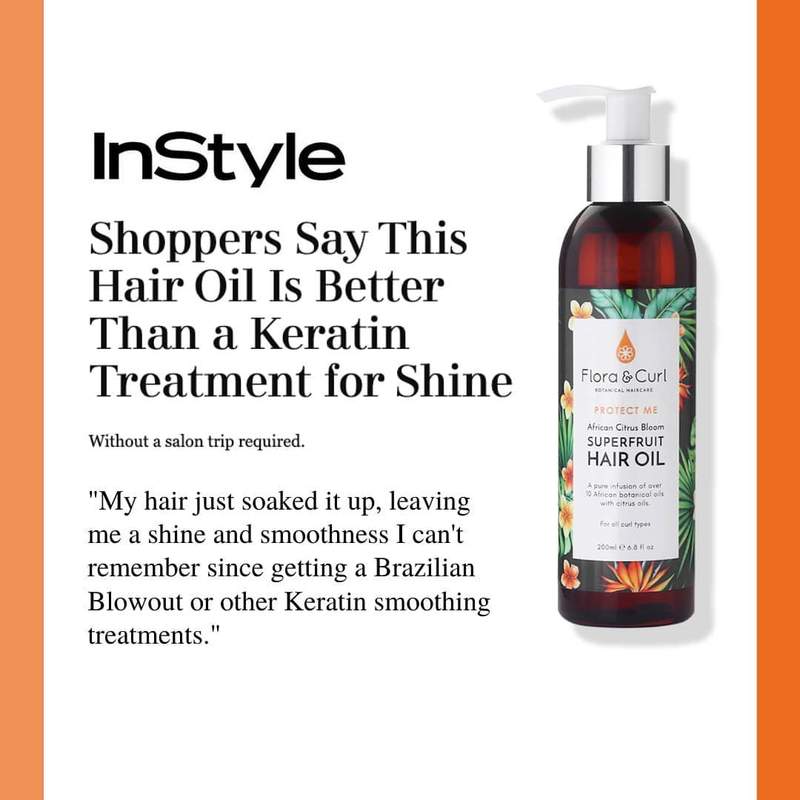
Shine oils or serums are great for your hair - particularly in terms of tips of your strands, which can be prone to drying out and splitting.
Light oils, such as coconut oil or argan oil, are best for thin, fine hair that is easily weighed down.
Almond and avocado oil is best for strong, thick hair. Serums with these oils are also a great choice but care should be taken when mixing with other ingredients.
Silky Summer Hair in Seconds
Well, there your have it, straight from the hair care goddess, herself.
For glistening hair straight out of a sizzling summer romance novel, just follow these tips.
Thank us later.
